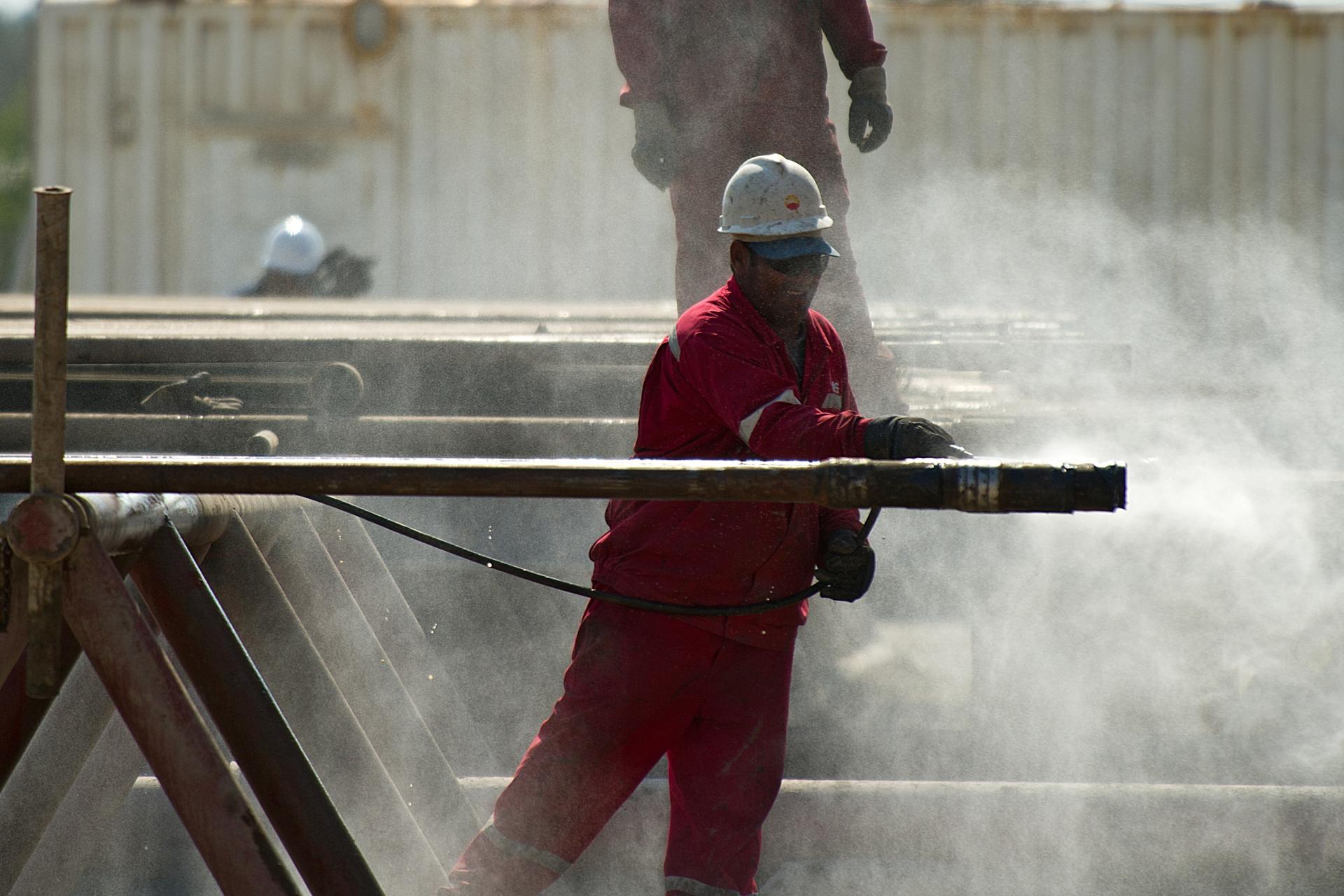Cuba: The revolution will not be energized
Working on an oil rig in Cuba. The island nation has not had much luck so far with quests for oil offshore.
HAVANA, Cuba — Cuba’s long, costly quest for socialism-with-oil appears to be ending in little more than a string of empty holes across the bottom of the Gulf of Mexico.
The latest attempt to strike crude in the deep waters off the island’s northwest coast has come up dry, the Cuban government announced Friday, and industry experts say it’ll likely be years before another rig tries there again.
The bust is a relief to opponents in Florida who feared a cash windfall for the communist government, and tourism officials in the state who have been dreading the possibility of a Cuban spill fouling their beaches.
But the news is a gut-punch to Cuba’s hopes for an oil injection to its faltering economy, and President Raul Castro’s attempt to save his older brother Fidel’s socialist system by introducing limited market principles and new sources of job growth.
Cuban officials recognize that the country’s overwhelming energy dependence on the Soviet Union led to disaster when the USSR crumbled. But Cuba’s creaky, inefficient electrical grid continues to rely almost entirely on imported oil and diesel fuel, most of which is sent today by energy-rich ally Venezuela.
Venezuelan President Hugo Chavez provides the Castro government with about 100,000 barrels of oil per day on highly favorable trade terms, roughly enough to cover two-thirds of Cuba’s energy needs. He was re-elected to a new six-year term last month.
But Cuba was counting on an oil find in local waters to trigger a rush of new foreign investment, and the ability to renegotiate some of its debts. Now, ambitious plans for new petroleum storage and refining facilities on the island may be scaled back, since they were partly contingent on the rise of a Cuban oil industry.
“It’s bad all the way around,” said Jonathan Benjamin-Alvarado, a professor at the University of Nebraska at Omaha who tracks Cuba’s energy sector.
“Cuba hoped the investment would help to advance energy development and serve as a catalyst for broader economic expansion,” he said. “I am certain that this is devastating news for all the interested parties and almost certainly chills the investment environment moving forward.”
In the next few years, 81-year-old Raul Castro is looking to move hundreds of thousands of state workers off government payrolls and into more productive industries that could drive economic growth. The island’s tourism industry continues to expand, but revenue from commodities like nickel and sugar has been sagging.
Cuba’s prospects for big oil were sufficiently attractive that nearly a dozen foreign companies signed deals with the Castro government to explore offshore in the Cuban-controlled waters of the Gulf of Mexico.
More from GlobalPost: Cuba watches 2012 US election closely
But drilling for oil is often a game of miss-and-miss, analysts say, and the failure of several foreign firms to reach commercial quantities of crude in Cuban waters is not proof such reserves are nonexistent.
The Cuban government’s statement Friday didn’t say the country was giving up on its search even though the latest well — opened in partnership with Venezuela’s state oil company PDVSA — was another dud.
“Although this well does not offer possibilities for commercial exploitation, the results obtained in the exploration will permit the guidance and expansion of the operations on the blocs of Cuba’s Exclusive Economic Zone in the Gulf of Mexico,” said a statement from government oil firm Cubapetroleo that ran in the Communist party newspaper Granma.
But although Cuba and its partners have the will to keep digging, they won’t have a rig, oil industry experts say.
The rig they’ve been using — the Chinese-built, Italian-owned Scarabeo 9 — is departing for most promising waters in Africa, according to experts consulted by Reuters.
At a rental cost of more than $500,000 a day, Scarabeo 9 is the only rig in the world built to comply with US trade sanctions against Cuba that mandate no more than 10 percent American technology may be used.
Without the Scarabeo 9, says former oil executive Jorge Pinon, Cuba will be “out of the ‘game’ for a long time with no ‘shovel.’”
Cuba’s best prospects for developing new oil resources now rest with Russian state firm Zarubezhneft, which has plans to explore in shallower waters using a Norwegian-built platform. But that rig will operate in an area of the Gulf that offers far poorer prospects for a quality find, and there has been no confirmation that it will arrive this month as previously announced.
Without an oil find to give Cuba a quick financial boost, communist authorities may need to look onshore for new economic prospects, further liberalizing the island’s small private sector and offering bigger incentives to foreign companies that might invest in agriculture, tourism and other proven moneymakers.
More from GlobalPost: Cuba Kapital, an in-depth series on Cuba's economic reform
Our coverage reaches millions each week, but only a small fraction of listeners contribute to sustain our program. We still need 224 more people to donate $100 or $10/monthly to unlock our $67,000 match. Will you help us get there today?
